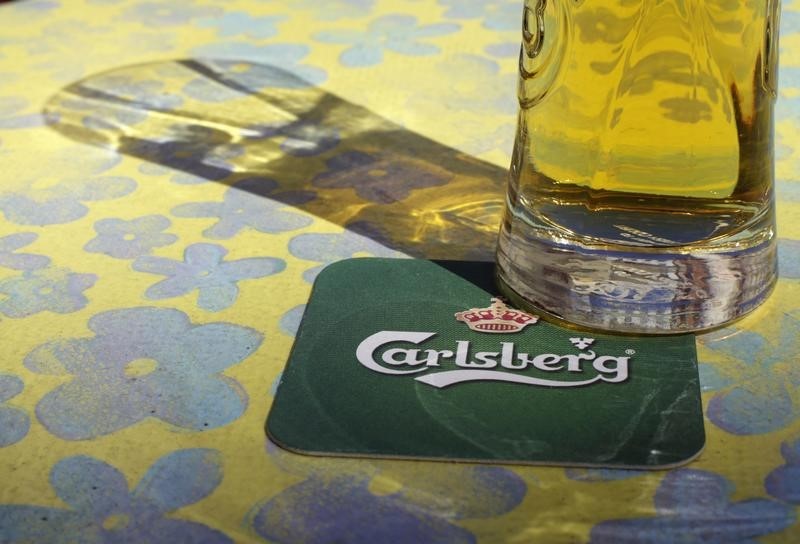This post was originally published on this site
https://i-invdn-com.akamaized.net/news/LYNXNPEB7I085_M.jpg
Investing.com — Carlsberg (CSE:CARLa) doesn’t give guidance right now, but if it did, it would be – if not the best in the world, then at least pretty decent.
The Danish brewer’s stock rose 4.7% on Friday in response to an early update on its first-half performance, which included the key messages that its Chinese business was rebounding “strongly” and that Europe, too, had seen “improved performance” toward the end of the second quarter. The benchmark STOXX 600 was up 0.3%, on course for a modest loss of 0.3% for the week.
The group also said it’s putting its share buyback program under review, to balance the need for cash to pay for acquisitions and dividends.
Normally, that would be taken as a negative, but the mere fact that it isn’t being suspended outright makes the news more encouraging than it would otherwise be, as does the reassurance that the dividend will still be paid.
Carlsberg (OTC:CABGY) stock is now only 2% below its post-pandemic high and, at 20 times trailing earnings, a rare example of a stock trading at a multiple that can be justified without magical thinking or advanced degrees in finance.
A yield of 2.4% on Thursday’s closing price is one of the better illustrations of the argument that “dividends are the new coupons”, given the reliability of the company’s cash flows and the low debt level (net debt is just 1.25 times EBITDA and it has no maturities until late 2022). Its recent acquisition of Marston’s brewing business at a knockdown price is also a sign that, even if management is withholding cash from shareholders, it’s using it to exploit such growth opportunities as can still be found in brewing.
The historical numbers are, naturally, not pretty: according to the group’s preliminary estimates, sales volumes fell 7.7% and revenue fell 11.6% in the first half of the year as the world shut its bars and restaurants. That also compressed margins, forcing the company to rely on supermarket and convenience store sales.
There may be further compression in the second half if it spends all the marketing dollars that it saved during the first six months.
Moreover, Carlsberg isn’t celebrating the end of the pandemic just yet. This is hardly surprising, given the weight in its sales mix of Russia, which is one of many emerging markets struggling to bring the coronavirus under control.
“Although government lockdowns are gradually being lifted, the sales development across our regions in the coming months continues to be volatile and uncertain, not least during the important summer months,” the company said Friday.
The smart money is still on that being at the more optimistic end of the guidance spectrum in the upcoming earnings season.

